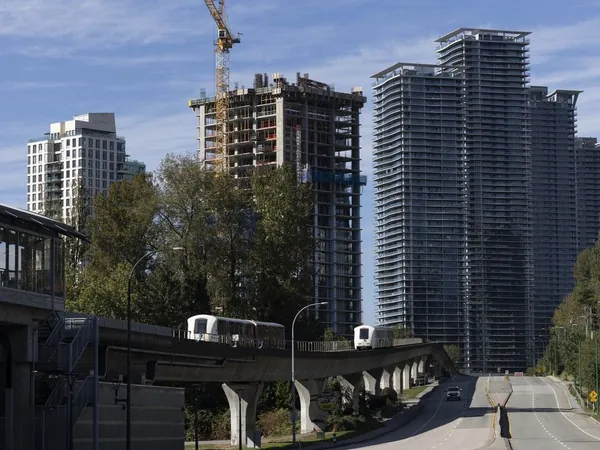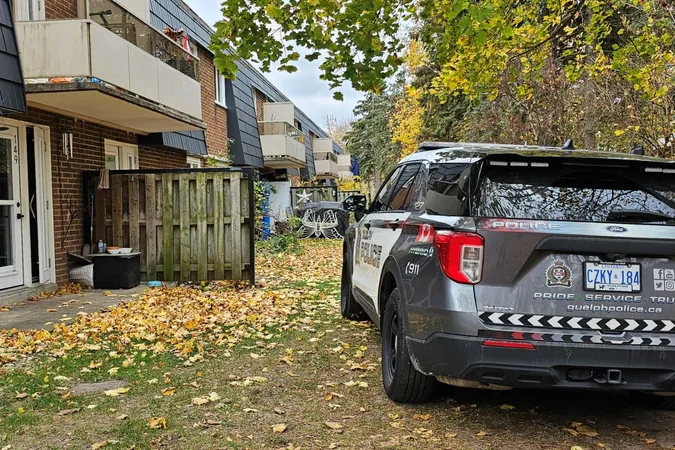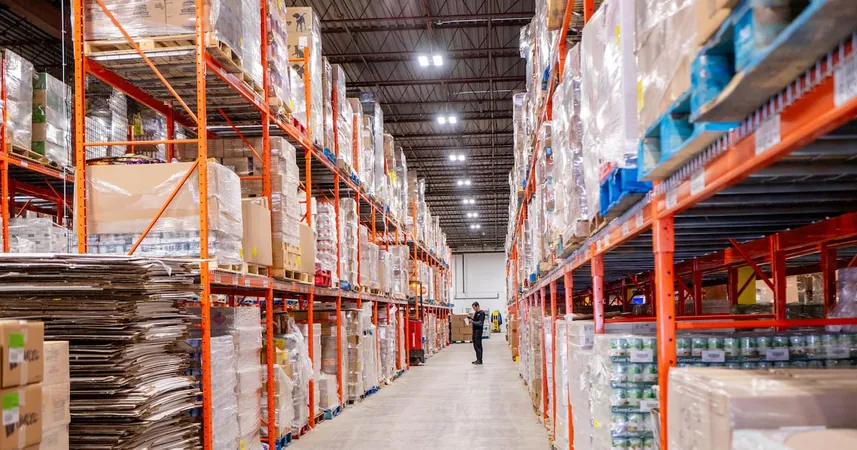
Burnaby Greenlights Ambitious 80-Storey Condo Project Amid Shifting Developer Trends
2024-09-25
Author: Benjamin
Burnaby Greenlights Ambitious 80-Storey Condo Project Amid Shifting Developer Trends
In a bold move to reshape its skyline, the City of Burnaby has granted approval for an eye-catching development: two towering residential buildings reaching heights of 80 and 72 storeys, poised to rise above the Lougheed Highway corridor. Despite this approval, industry experts are cautioning against reading too much into the decision, suggesting that the future of high-rise developments might not follow suit.
The ambitious project, spearheaded by Pinnacle International, aims to deliver 1,466 condominiums, potentially positioning one of its towers as one of the tallest residential buildings in Western Canada. However, market trends indicate a growing preference among developers for shorter structures, with many leaning towards buildings that range from 35 to 45 storeys.
Richard Bernstein, a principal at Chris Dikeakos Architects, noted this shift in building preferences, stating, “We are seeing a number of developers making a switch to a sweet spot of building in between 35 to 45 storeys.” This change is largely motivated by financial considerations, as acquiring financing for taller buildings often necessitates a hefty volume of presales—typically around 60% of units sold before construction can begin.
Interestingly, the allure of tall towers hasn't completely dissipated. Zonda Urban, a firm tracking real estate trends, lists over two dozen high-rise projects exceeding 45 storeys that have been approved across Metro Vancouver, with a significant concentration in Burnaby. Notably, the region also houses a further 43 proposed projects, indicating that interest in tall residential buildings persists, albeit cautiously.
The lengthy approval process is another hurdle developers must navigate. The timeline for a project to transition from approval to a presale campaign can be complex and influenced by various factors—from economic conditions to market strategy shifts. Pinnacle’s development journey began in 2018 when the company acquired a four-acre site for approximately $220 million, marking a significant milestone in Metro Vancouver's property market.
Delays and challenges are not uncommon. Pinnacle's proposed project, which initially emerged in 2019, faced multiple readings before receiving the green light this week, illustrating the lengthy path to realization for high-rise developments. Grace Kwok of Anson Realty Ltd., who will oversee marketing efforts for Pinnacle’s new endeavor, emphasized the resource-intensive nature of high-rise constructions.
There’s also a parallel to be drawn between this development and projects in Toronto, where Pinnacle is constructing One Yonge, slated to become Canada’s tallest residential building at 105 storeys. As cities across Canada work to increase density around transit hubs to combat rising land costs and housing shortages, high-rise construction poses a strategic solution.
Nonetheless, there are physical and logistical limitations to building tall. As Bernstein pointed out, advances in structural engineering become essential as heights surpass 50 storeys, introducing complexities such as the installation of mass dampening systems to manage building sway and elevated construction costs.
As Burnaby takes significant steps forward with its towering new condos, the real estate landscape continues to evolve. The balance between ambition and practicality will greatly influence the direction of development across Metro Vancouver in the years to come—especially as developers balance the allure of stunning skyline views with savvy financial strategies.
Stay tuned for what this could mean for the future of residential spaces in a bustling urban context!









 Brasil (PT)
Brasil (PT)
 Canada (EN)
Canada (EN)
 Chile (ES)
Chile (ES)
 España (ES)
España (ES)
 France (FR)
France (FR)
 Hong Kong (EN)
Hong Kong (EN)
 Italia (IT)
Italia (IT)
 日本 (JA)
日本 (JA)
 Magyarország (HU)
Magyarország (HU)
 Norge (NO)
Norge (NO)
 Polska (PL)
Polska (PL)
 Schweiz (DE)
Schweiz (DE)
 Singapore (EN)
Singapore (EN)
 Sverige (SV)
Sverige (SV)
 Suomi (FI)
Suomi (FI)
 Türkiye (TR)
Türkiye (TR)